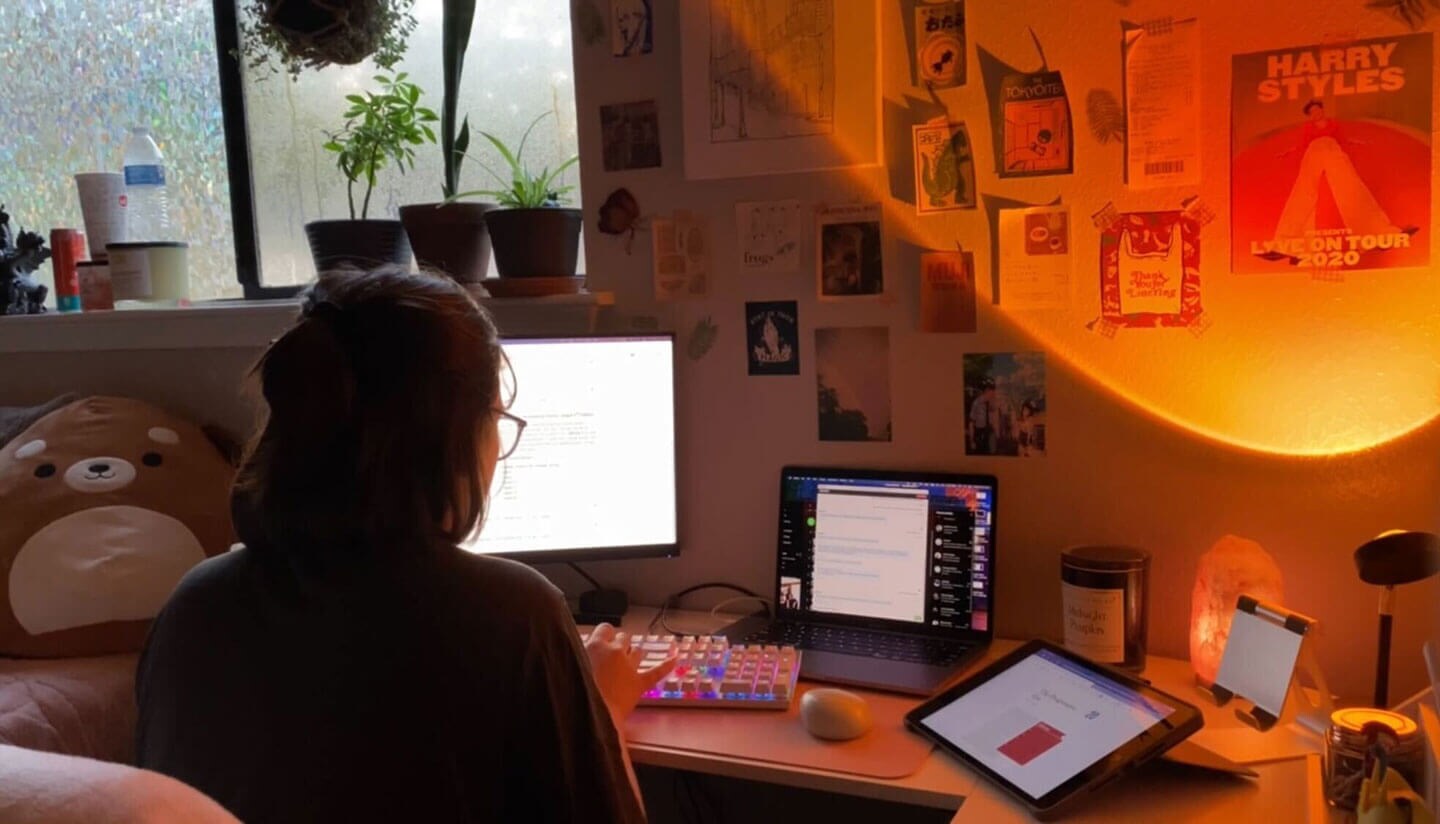
Reset, Recenter, Refocus
I’ve heard from many of my classmates that the first exam for a class is the most nerve-wracking of them all. Not only will your exam grade set the tone for the rest of the semester, you’ll also see whether you are meeting or failing the expectations that you set for yourself. I’ve personally been through both scenarios; feeling the exhilaration of nailing the first exam, only to feel completely crushed by another exam later that day. Whether you passed or failed, I’m here to give you some tips on how you can reset, recenter, and refocus for the rest of the semester.
If you did well on the first exam, you’ll probably feel like you’re on top of the world, at least for a couple of days. You’re already thinking about all the extra nap time you’ll have instead of needing to study or cram for that next one. I’m here to tell you: That. Is. A. Trap! Don’t let that good feeling cloud or change how you approach the rest of the semester! Imagine this as a reset of sorts; pretend that first exam didn’t happen. Remember how you got to this point in the first place: solid study habits, asking questions when you’re unsure, and taking mental breaks when needed. I’m not saying to not enjoy the moment; there’s something to be said about resting on your laurels for a while. However, it is important to stay focused and keep that goal of yours from the beginning of the semester in mind. Whether that was to maintain a 4.0 GPA or to just scrape by that hard chemistry class with a C, early success can completely derail a semester of good work if you aren’t focusing on how to continue that success.
On the other hand, if you did poorly on the first exam, it can feel like your entire semester has crashed and burned before it even began. The stress of knowing that you must work even harder for the rest of the class can destroy whatever motivation you had beforehand. Take some solace in the fact that nearly every student has been in your shoes before! It’s not an uncommon experience and you can absolutely turn it around with some adjustments. Take some time to recenter and take care of your mental state before anything else; this is a tough time, and it really pays off to make sure you’re back in the right mindset. Go exercise, focus on your hobbies, or just hang out with your friends. Do something that will take your mind off the low grade for a little while. For me, I like to go hiking or hit the trails with my friends. Being in nature tends to ground me and helps calm me down after a stressful experience. Once you feel ready, reflect on what happened; did I need to study more? Should I have attended office hours? Find actionable and measurable steps you can take to improve your next result.
After the first exam, pass or fail, it’s important to refocus on the goals you set for yourself! This was the first major milestone for you! Think about what you expected to happen versus what happened and how that might change your goal. Maybe now you can take more time for yourself or conversely, maybe now you need to stay in the library for that extra hour or two. There are an infinite number of ways to get where you want to go; the most important thing is to choose the path that works the best for you. When in doubt, just remember the three R’s; reset, recenter, and refocus.
Do you have a compelling story or student success tips you’d like to see published on the Pearson Students blog? If you are a college student and interested in writing for us – click here to pitch your idea and get started!

